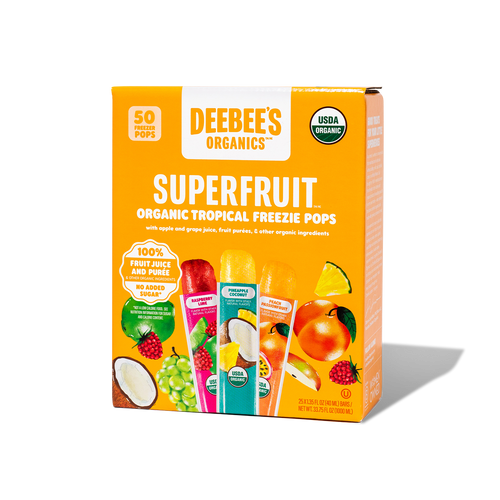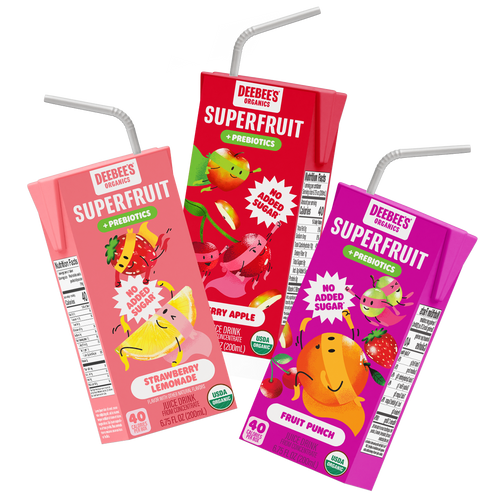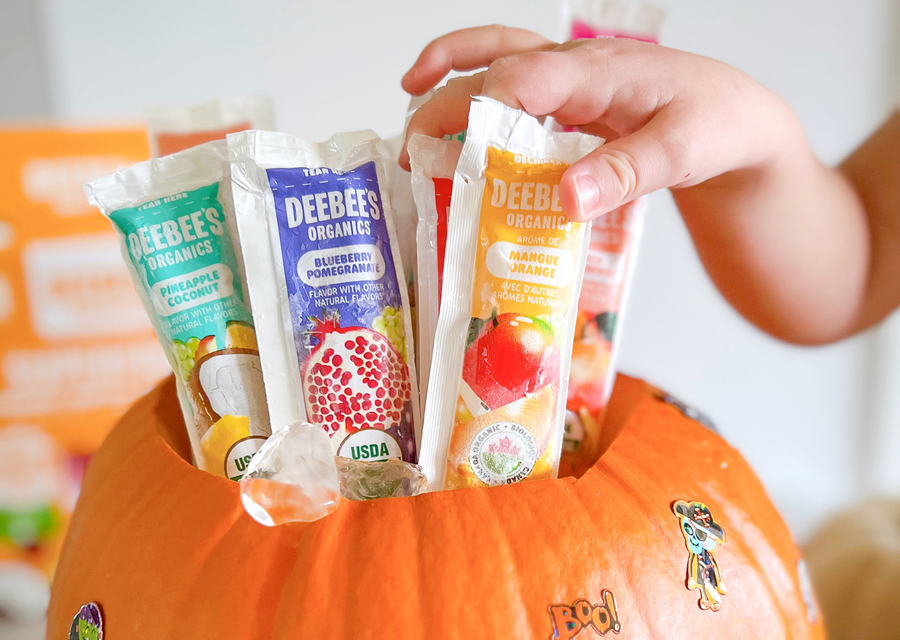Here at DeeBee’s, we love our fruits and vegetables. While our favorite produce from the grocery store is filled with health benefits, some of them also contain small quantities of pesticide residues.
Keep reading to learn about 2024’s dirty dozen and clean fifteen, and explore our favorite ways to mitigate any potential negative effects of pesticides in the fruits and veggies we eat!
What is the Dirty Dozen?
You might have heard of this term used before in discussions of food, but what does it actually mean? The dirty dozen is a list of twelve common fruits and vegetables that contain the highest level of pesticide residues.
This ‘dirty dozen’ list is re-released on a yearly basis by the Environmental Working Group (EWG), as part of their continuous goal to raise awareness around food safety and the sometimes harmful effects of long term pesticide ingestion. Each year’s dirty dozen list is carefully chosen by the EWG after analyzing produce test results from both the FDA and the USDA Pesticide Testing Program.
This year, the dirty dozen is (listed from highest level of pesticide residue content to least):
- Strawberries
- Spinach
- Kale, collard, and mustard greens
- Grapes
- Peaches
- Pears
- Nectarines
- Apples
- Bell Peppers and Hot Peppers
- Cherries
- Blueberries
- Green Beans
How Can Pesticides Affect Our Bodies?
So what does it actually mean when a fruit or vegetable we love to eat is on the dirty dozen list?
Strawberries are some of the most popular fruits in North America, but also #1 on the 2024 dirty dozen. This is because although non-organic strawberries are filled with antioxidants and vitamin C, they also may contain pesticides linked to developmental, reproductive, and neurological damage. However, when you choose to buy strawberries that are organically grown, you can experience these same benefits without the effects of pesticide residue!
While still commonly debated among experts in the field, it is generally agreed upon (by both government agencies and independent scientists) that continuous exposure to pesticides in food can build up in our bodies, and contribute to a variety of health challenges. The general health problems connected to pesticides include brain and nervous system toxicity, and hormone disruption.
However, this does not mean that we should be afraid of, or stop eating fruits and vegetables we love! Keep reading to explore our favorite low-effort ways to mitigate the long-term effects of pesticides in our fresh produce.
Our Tips to Reduce Pesticide Ingestion Over Time
Wash your fruits and vegetables more effectively: The first step towards ensuring our produce is as clean and ready to ingest as possible is by washing your fruits and vegetables! While soaking berries can help extract dirt and bugs, don’t forget to run every section of your fruit or vegetable under moderately forceful running water, and then pat it dry. Try peeling your non-organic fruits and vegetables (like apples and carrots) as well as scrubbing thick-skinned vegetables before cooking with them (like zucchini and squash.)
Opt to enjoy more produce from the clean fifteen: It’s not all about the dirty dozen! The clean fifteen refers to the 15 common fruits and vegetables that contain the lowest amount of pesticide residue. This year, this list includes avocados, sweetcorn, onions, pineapple, papaya, frozen sweet peas, asparagus, honeydew melon, kiwi, cabbage, mushrooms, mangoes, sweet potatoes, watermelon, and carrots. This means that you can opt to buy and enjoy more produce from this list than the dirty dozen. Including a wide variety of fruits and vegetables into your diet will always do good!
Try going organic when you buy: The pesticides found within organic produce is far less in quantity than those found in non-organic fruits and vegetables. Pesticides used in organic foods are also derived from natural substances, rather than being synthetically derived. For this reason, try to shop organic! To make this a smarter and even more accessible choice, try prioritizing organic when purchasing produce from the dirty dozen to avoid fruits and veggies that contain the highest levels of pesticide residue.
Try growing your own fruits and vegetables: We’re always in favor of getting produce from a variety of sources! While organic produce or produce from local farmer’s markets can be great ways to acquire food that is less likely to contain pesticide residue, they can also be more expensive or harder to reach as conveniently as a chain grocery store. For this reason, we love to grow our own fruits and vegetables with the space that’s available. Try growing strawberry runners easily at home, and bring your children in on the gardening fun, too!





